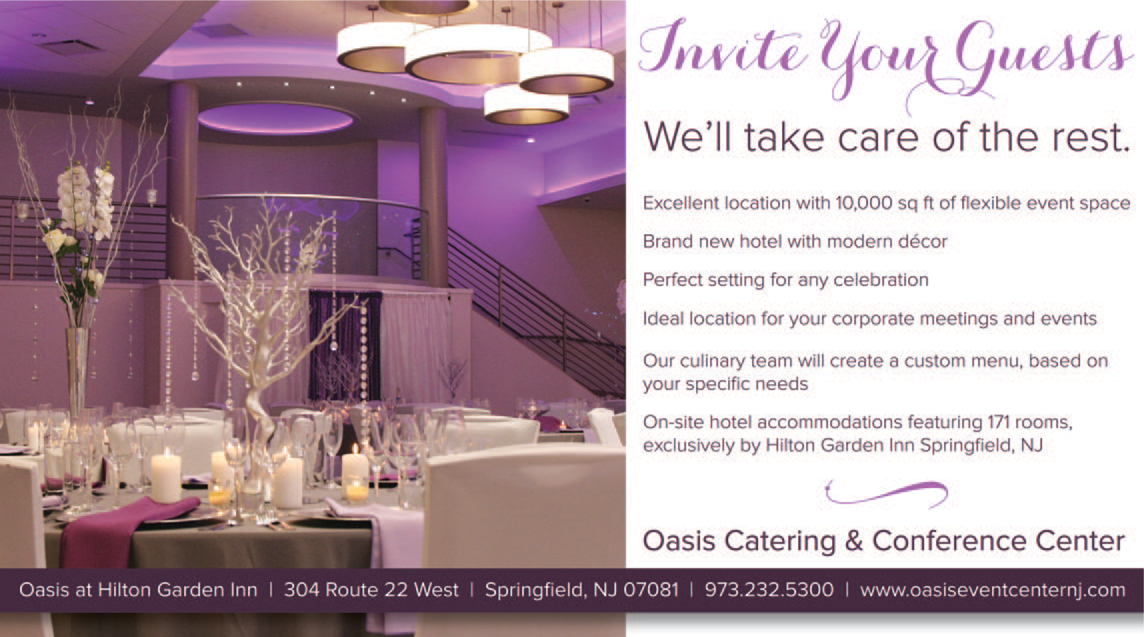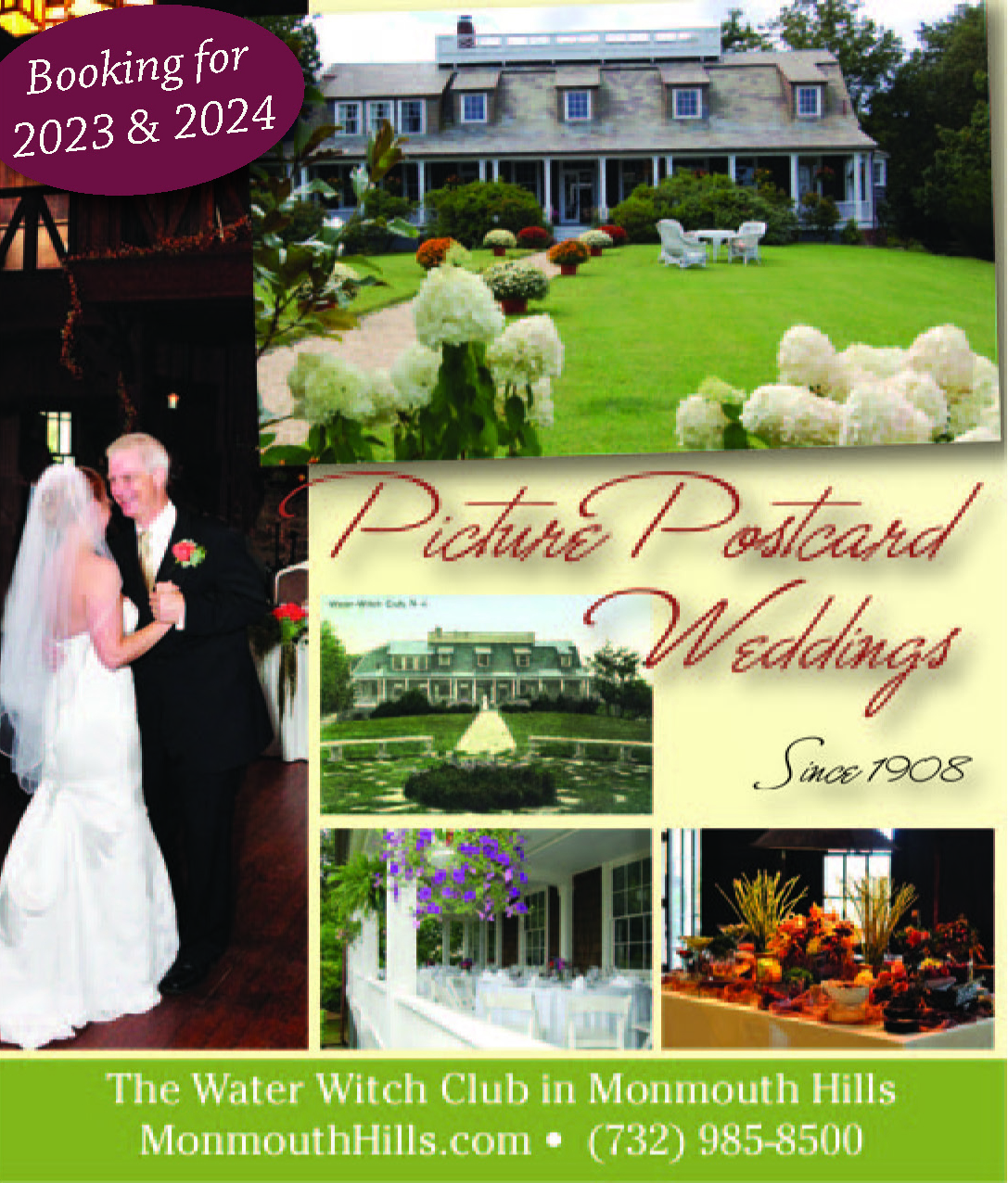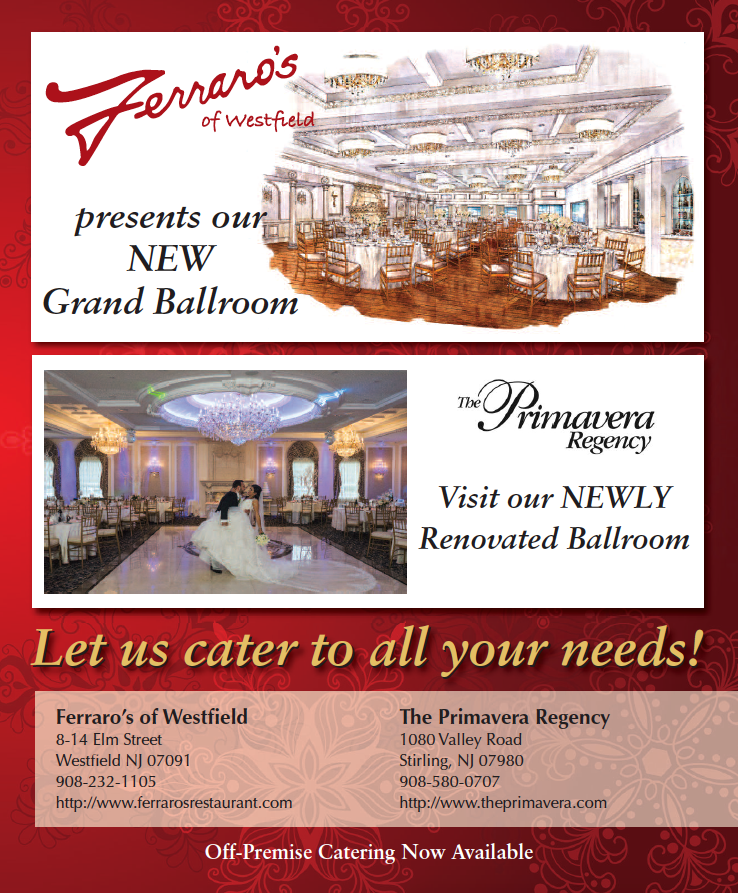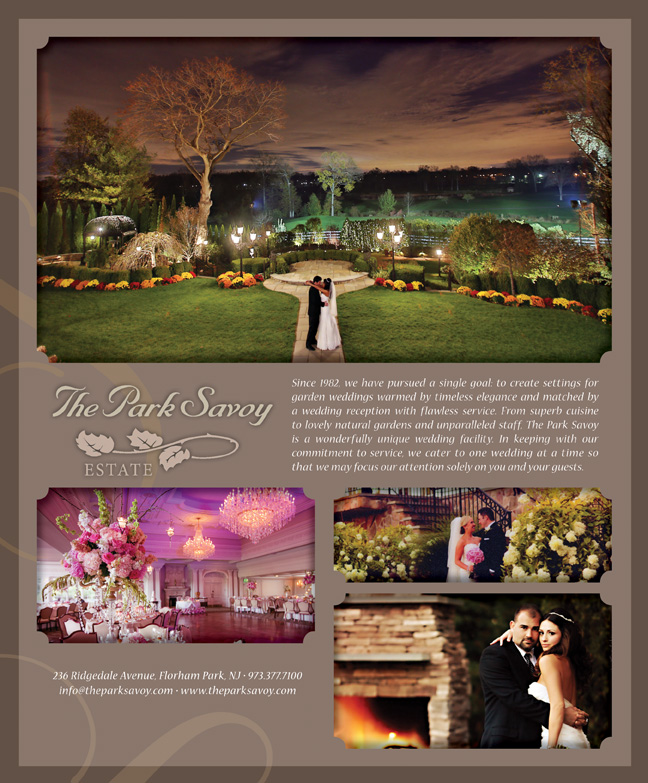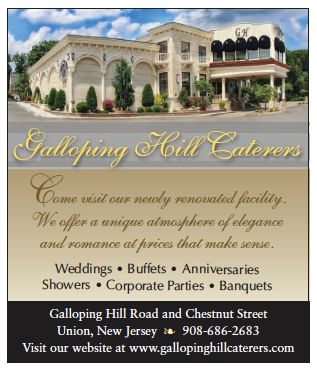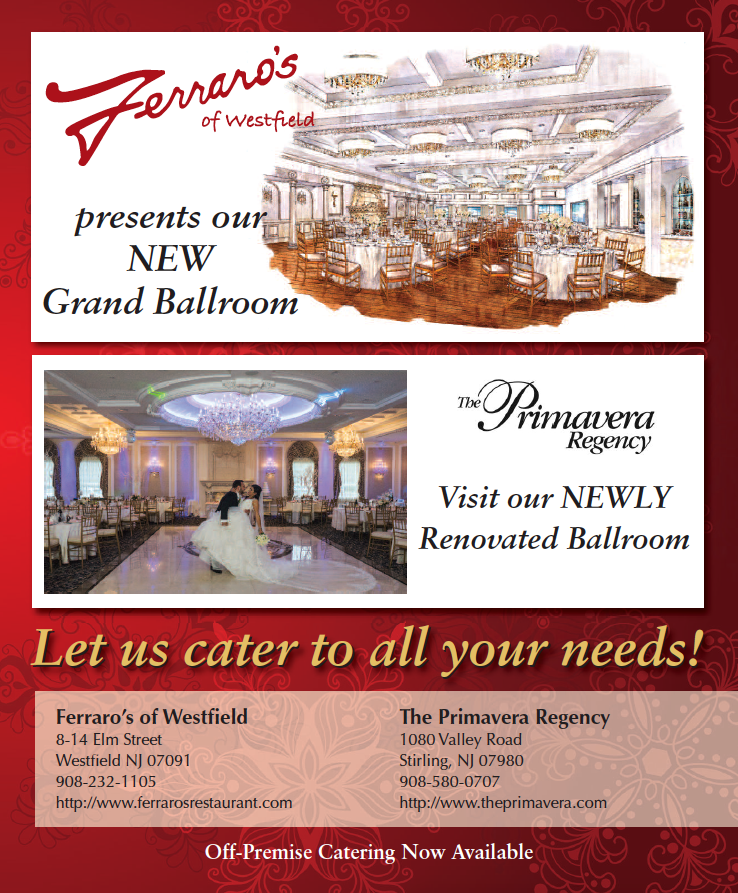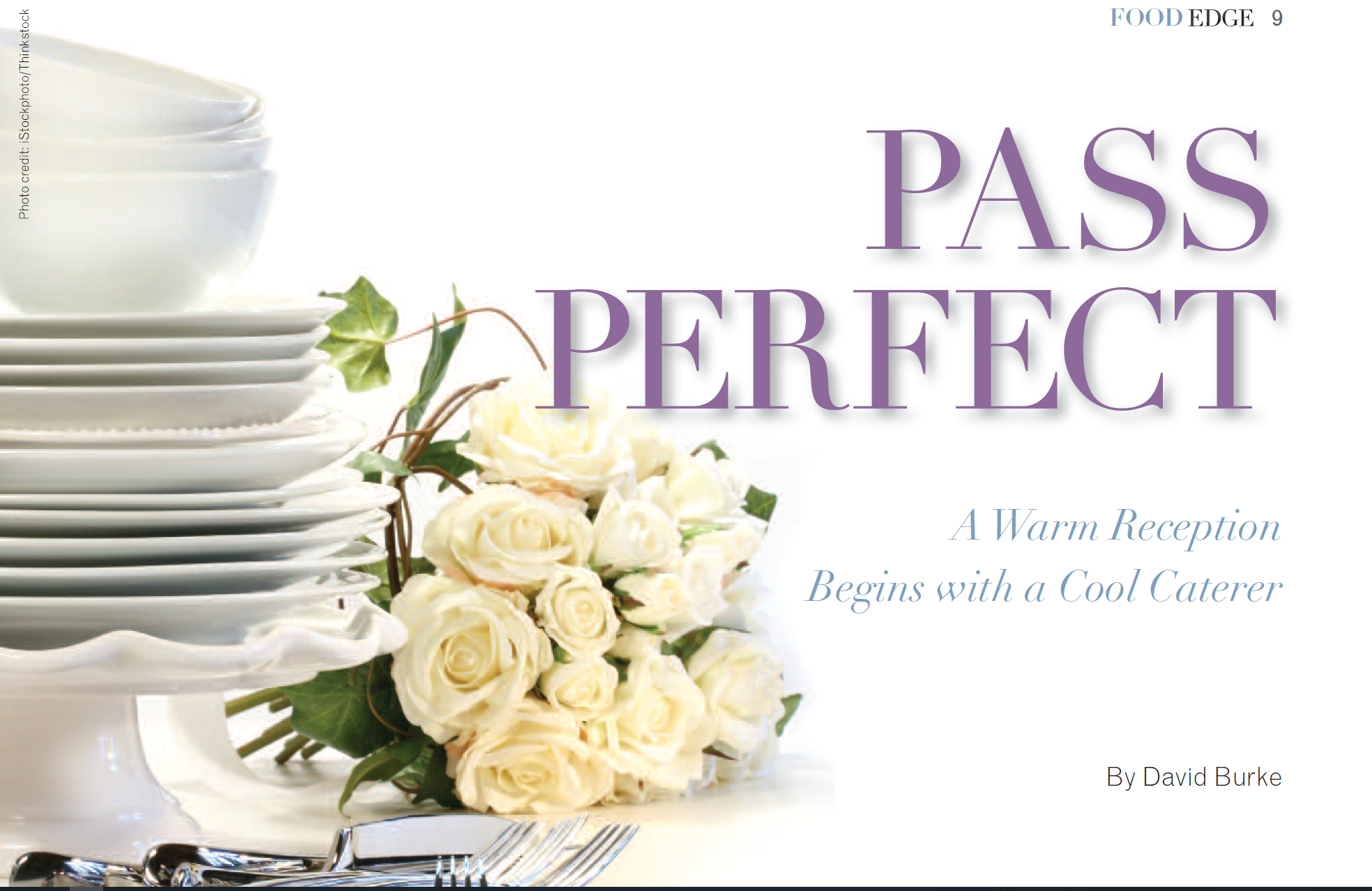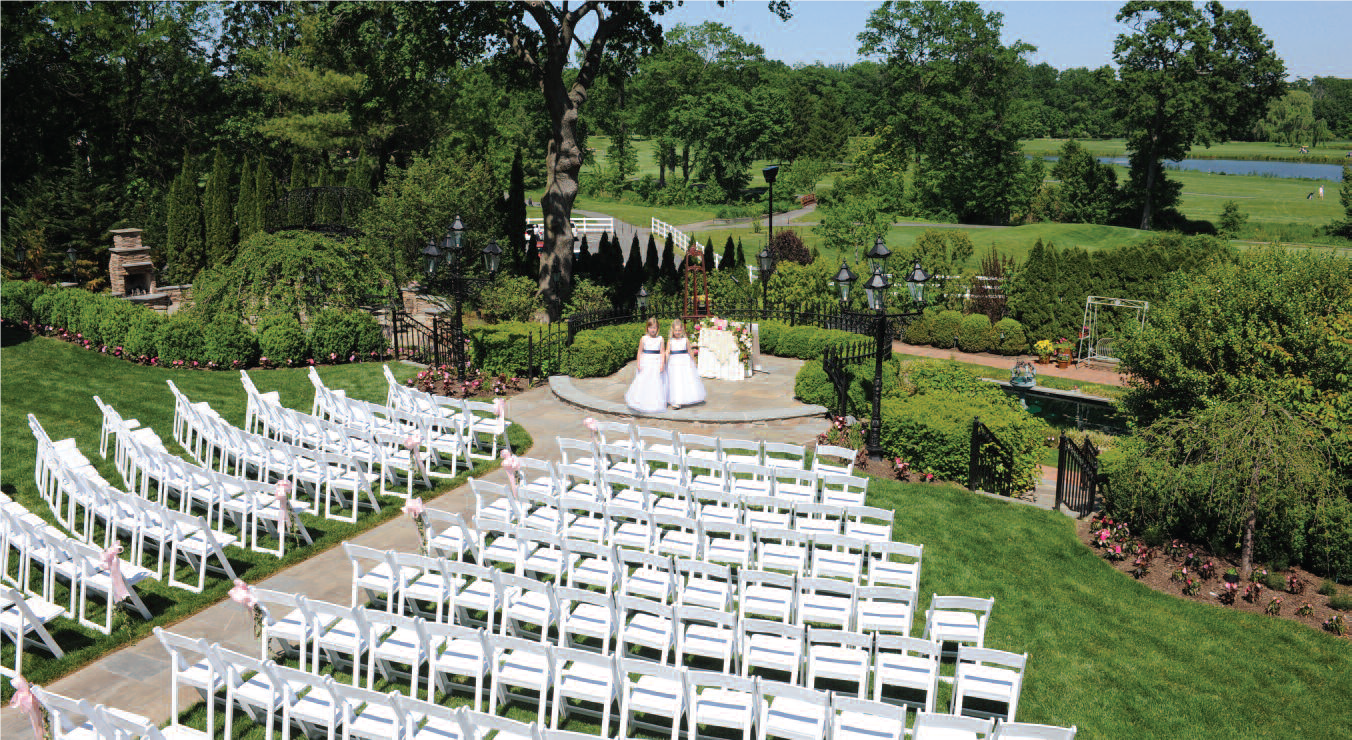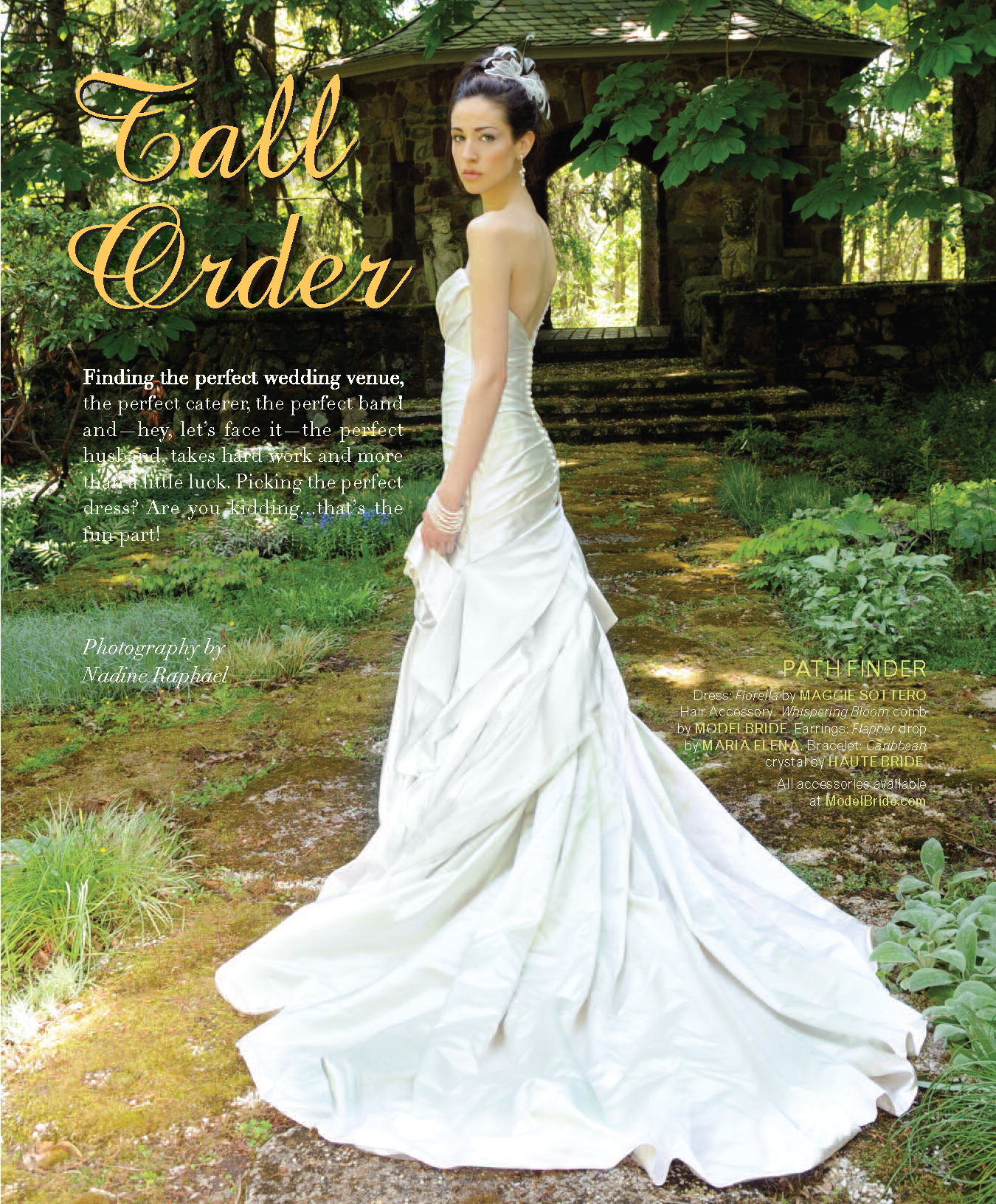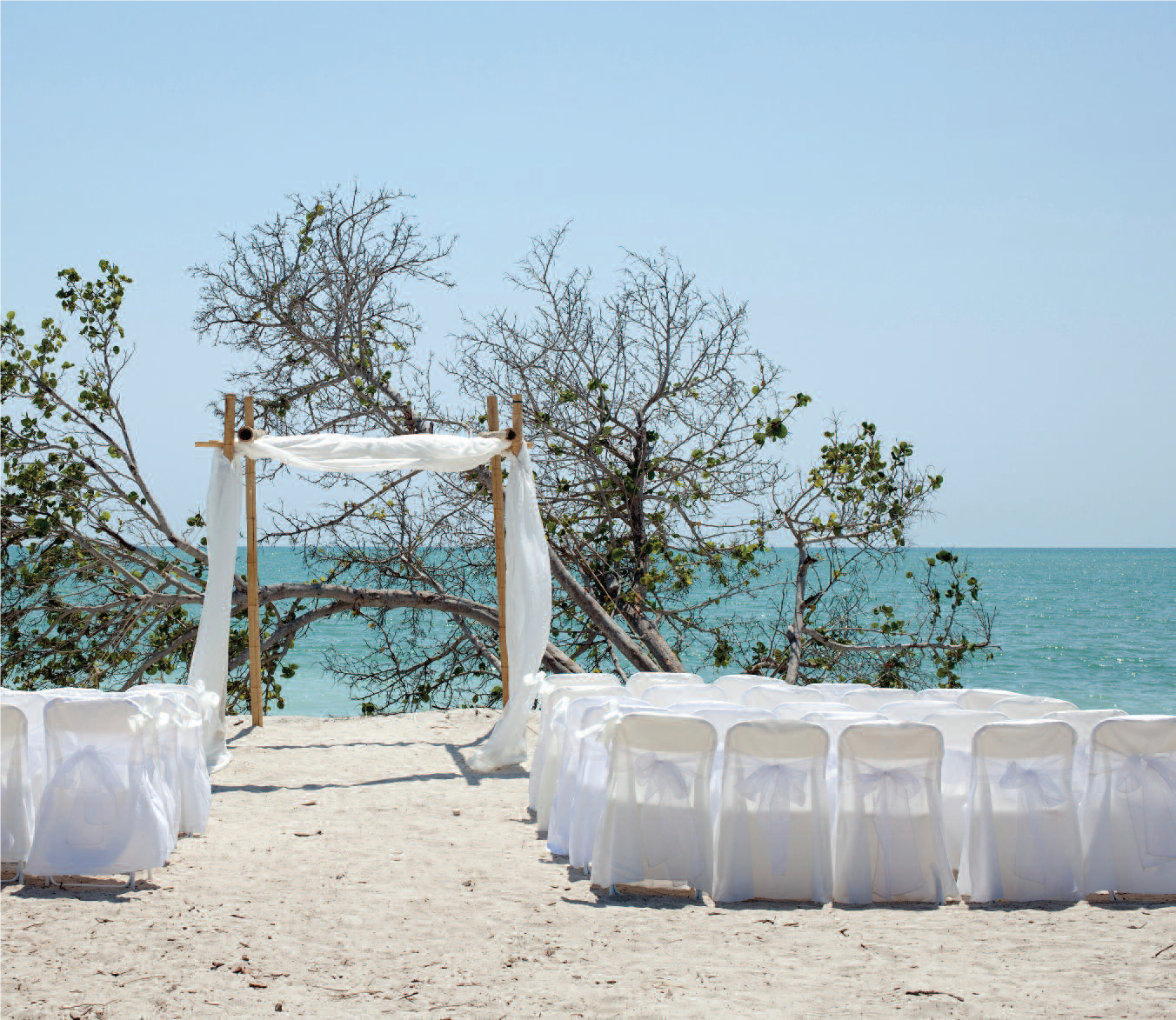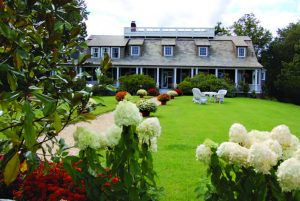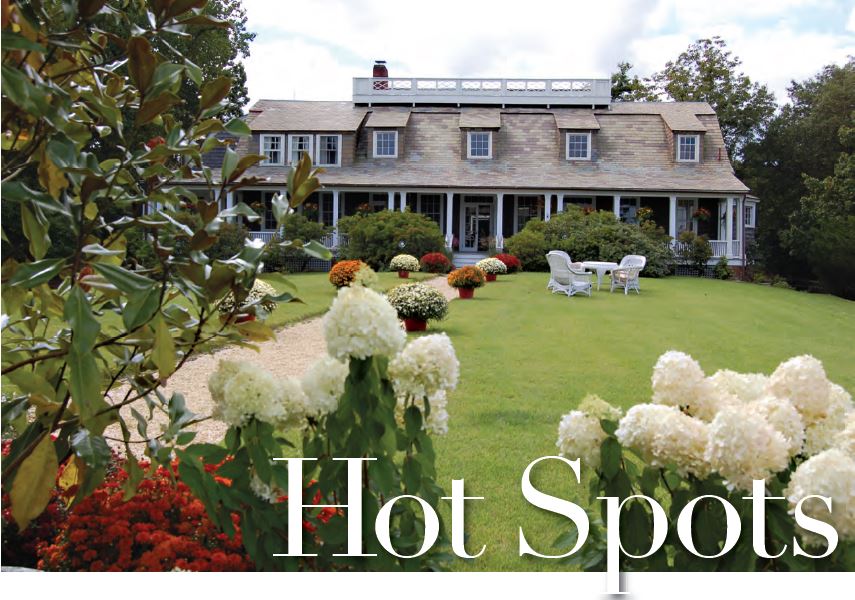- 304 Route 22 West Springfield NJ 07081
- 973-232-5300
- visit website
- 43 W Twin Rd. Highlands NJ 07732
- (732) 872-1675
- visit website
- 1080 Valley Rd. Stirling NJ 07980
- (908)580-0707
- visit website
- 236 Ridgedale Ave. Florham Park NJ 07932
- (973)377-7100
- visit website
- 325 Chestnut St. Union NJ 07083
- (908)686-2683
- visit website
- 8-14 Elm St. Westfield NJ 07090
- (908)232-1105
- visit website
A Warm Reception Begins with a Cool Caterer
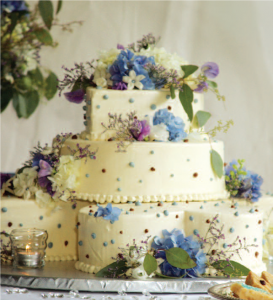
Photo credit: iStockphoto/Thinkstock
Call me biased but I think great, memorable food is the key ingredient in a great, memorable wedding reception. It’s not just me. I know people who were married decades ago who can’t name half their wedding guests, but they can tell you to this day in excruciating detail what they thought of the food. Pick the right caterer for the right reasons and you’ll be golden. Choose the wrong one and, well, let’s not go there. Most people know me as a restaurateur or “celebrity chef” so they are surprised when they’re doing that first bit of wedding research and my name suddenly pops up as someone who caters receptions. So are people from this area who approach me at David Burke Kitchen in New York, or at Fromagerie in Rumson, looking for a catering recommendation.
I like to do weddings and other big events outside of my restaurants. I’ve got an entire staff devoted to catering now, and it’s becoming an increasingly important part of my business. Think about it. If I am pulling out all the stops for 150 people and creating a totally unique wedding experience, maybe only a fraction of those guests have been to one of my places. So when we do a great job, it’s a powerful advertisement for the restaurants—and, of course, for future weddings and other events, like fundraising galas. By the same token I do have an advantage in this business in that the couple that contacts me has almost certainly experienced my menu before and liked it.
Consequently, that first conversation isn’t so much a selling opportunity as an opportunity to ask them what they love about my food and how they envision incorporating it into their event. That being said, I also know that those same folks may also be considering two or three other competing options, so I still have to make them go Wow! In fact, I think when you go shopping for a wedding caterer you should set the bar high—make them make you go Wow! For me, the wow factor is all about coming up with really cool ideas, ideas that go beyond what any other caterer might think of. I hate handing out a menu and saying, “Here, pick one of these.” I want to create a unique wedding. I’m not afraid to take chances, and if the couple thinks the same way then we can do some fun stuff.
That’s why I think it’s crucial to get a read on their personalities and their shared experiences, and use that as a springboard. I like to know where they met and what was their first meal together. You never know where that first bit of inspiration will come from. But once you’ve got that, you build it out to include the food, the cake, the table settings and the gift bags. One thing I try to encourage clients to do is think about elements of interactivity and craftsmanship. It might be an artist carving an ice sculpture during the reception. It might be meringue floating on balloons. It might be a kitchen tour—people are so curious about food and what chefs are doing. The wedding cake is always an interactive experience, but why not take that to the next level? Everyone assumes a cake has to be made days in advance.
That’s not necessarily the case. We can bring in a master baker to create the cake during the wedding, and guests can actually have a hand in the finishing touches. And who doesn’t like to lick the bowls? We can set it up so everyone “licks the bowl” at their tables. Of course, fewer and fewer weddings these days are what I’d call traditional sit-down affairs. A lot of conversations I have begin with, “I want something different than a fully plated meal.” They don’t want people to feel stuck to the table. However, the fact is that there is almost always some sort of sit-down component—and the main course choices do need to be somewhat traditional, because your goal there is to please as many people as possible. You can’t put skate or bluefish or sweetbreads on the menu. But that doesn’t mean you play it safe, either. On the contrary, we can do some eye-opening things within the confines of chicken-salmon-filet-vegetarian. If someone says let’s do prime rib and baked potato, fine, we’ll sex it up and make it modern. It’ll be the best they ever had. By the same token, if someone wants burgers or meat loaf or some other comfort food at a wedding, we’ll do it. That’s what we’re all about. I was thinking that I’d love to do a breakfast wedding. Has anyone ever tried that before? I wonder. This shifting focus on creating a series of extraordinary hors d’oeuvres I think is fantastic. Anyone who knows me knows that I love that kind of challenge. Ideally, I like to do eight to ten at a reception. It gives us a chance to show off.
Making the Call The ideal time to pick your wedding caterer is six to nine months before the big day. The three pieces of information you’ll need are the venue you’ve selected for the reception, the number of guests you are expecting and a rough idea of your budget. It’s not crucial to have nailed down the exact date, but a range of dates is helpful. The items you can expect to cover in your initial meeting include the type of reception you envision and how the event will flow. Do you want to lean toward the traditional, or make it fun and interactive? Is there a theme or trend that you’re interested in exploring? What don’t you like? Have you seen pictures in a magazine or on the web of a reception that sparks your imagination? If so, bring them to the meeting. Needless to say, there will be a lot of discussion about food choices. Don’t expect to make any decisions at this first encounter. A caterer may make suggestions to get a feel for your preferences, but nothing is set in stone. After that initial meeting, there will be a lot of follow-up to solidify as many details as possible. From there, the caterer will propose a menu crafted to fit your tastes, your reception theme and your budget. It’s a good idea to arrange a tasting if anything is undecided, especially as you get a little closer to the date. We’re fortunate in that most of our wedding clients have eaten in my restaurants or are familiar with my food from other catered events.
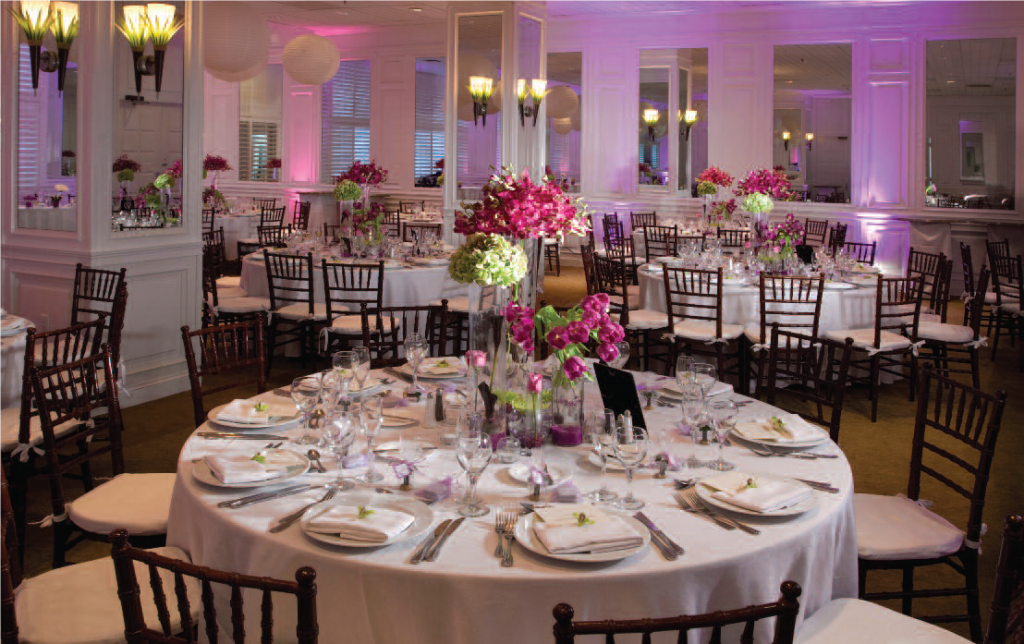
Photo credit: iStockphoto/Thinkstock
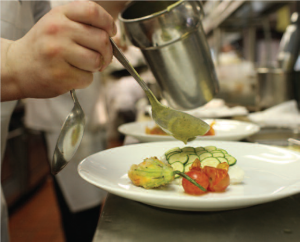
Photo courtesy of David Burke
Building a menu that pushes the envelope is the fun part of planning a wedding. The tricky part is making sure that your caterer can actually pull it off. We tend to end up working in venues with a lot of character but also a lot of quirks. It might be a museum in the city or a private estate in the country or a historic venue like Water Witch. Understanding the limits and the possibilities of these unique spaces is really important. It determines what equipment we truck in and how we staff an event. Don’t let caterers get away with saying, “No sweat, we got it covered”—especially in a space they haven’t worked in before. The devil is always in the details. Here are some rules of thumb. You’ll want one waiter for every 20 guests. You’ll want to make sure that there is a hierarchy in place. There should be a captain, a head bartender and someone in charge of the busing staff. That’s the front of the house.
Behind the scenes are the cooking and cleaning crews. For a wedding of 200 we typically bring at least six cooks and two or three people to keep the kitchen and prep areas clean and uncluttered. Don’t use a company you suspect is skimping on manpower. We usually err on the side of over-staffing events—we want to do such a good job, and that’s tough to do if you’re shorthanded. What else is reasonable to ask a wedding caterer to do? A caterer is not a party planner, but they can be helpful with details like flowers and audio/visual. I’d say we get involved in those areas—or at least make recommendations—about 15 percent of the time. We do work with party planners, probably at least 50 percent of the time. But nowadays a lot of people take on the wedding planning themselves. If they have opted not to go with a banquet hall, then they have already started down that path.
Sometimes in the eleventh hour the bride realizes she can’t handle it and she reaches out to us. We can usually see it coming, and we’re happy to help. So what should a catered reception cost? That’s the $64,000 question, isn’t it? If you care about food, obviously you want to devote as much of your budget as you can to making that part of your wedding memorable. If you want to transcend the basic beef-chicken-fish menu and make the food itself a series of unforgettable experiences, it comes with a price tag. But it’s not as much as you’d think. Depending on the venue you’ve booked, you’re probably going to end up between $150 and $300 a head. That number includes staff, rentals, etc. For this caliber of event—essentially the same party we’d do for the Whitney in New York—that is very competitive.
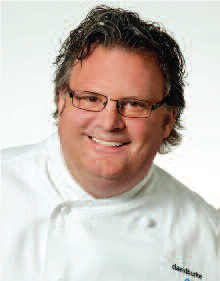 Editor’s Note: David owns David Burke Kitchen, David Burke Townhouse, Fishtail by David Burke and David Burke at Bloomingdales in New York, David Burke Fromagerie in Rumson, David Burke Prime in Connecticut and David Burke’s Primehouse in Chicago. www.davidburke.com
Editor’s Note: David owns David Burke Kitchen, David Burke Townhouse, Fishtail by David Burke and David Burke at Bloomingdales in New York, David Burke Fromagerie in Rumson, David Burke Prime in Connecticut and David Burke’s Primehouse in Chicago. www.davidburke.com
Business has never been better at many of NJ’s traditional wedding venues. A peek behind the scenes at the Park Savoy shows why.
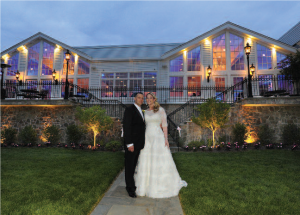
Photography by Light Impressions Photography ©2012 Courtesy of The Park Savoy Estate.
Every bride begins her matrimonial journey with one thought: Make my wedding day a day to remember. There is more than a little wiggle room within that sentiment. Theoretically, you could have an unforgettable service and reception in a field of daisies, the upper deck at Yankee Stadium, a tropical resort, or your college roommate’s uncle’s backyard. To the out-of-the-boxers we say more power to you. Theory is one thing, however, and practice another. Which is why, despite all those “do-it-yourself” receptions you hear about, the demand for formal wedding halls has never been greater. It also explains why the folks who brought you Naninas on the Park—those original take-charge guys Barry Maurillo, Joe Maurillo and Vito Cucci—had over 250 weddings booked (no, that’s not a typo) just a couple of weeks after reopening The Park Savoy Estate following a $6 million renovation that began last December.
It doesn’t take an expert to spot where the money went. Every square foot of the 19th century mansion—which at various times played host to everyone from Charles Lindbergh to Jean Harlow to Lucky Luciano—was re-conceived to deliver the utmost in luxury, comfort and opulence. The entire property, indoors and out (they stopped counting at 30,000 sq. ft.), is devoted to one bride and groom at a time, and can comfortably accommodate over 400 guests. Weddings typically take place Thursday through Sunday, in the afternoon and evening, with an average of three to five a week. Guests flow from a spacious reception area and wood-paneled barroom to the veranda and landscaped grounds and ultimately to a grand ballroom. There is also a separate bridal retreat with its own martini bar (ask and the Park Savoy will create a “signature drink” for bride and groom). If you’re picturing a typical “wedding factory” then you’re missing the point. For those few magical hours, the Park Savoy is meant to feel like home. “People walk through the front door and they fall in love,” says Joe Maurillo. “They sense right away that there’s something different happening here. It’s not just the beauty of the space, it’s how we interact with them. They’re not clients, they’re family. We treat all of our guests that way. We even treat our employees like family.” All of this comes at a price, of course. The Park Savoy represents the gold standard of formal wedding venues in New Jersey, and it’s not for every budget. That being said, at roughly $135 to $250 a head, it is more than competitive in the current marketplace.
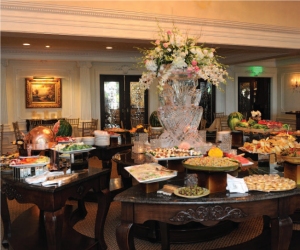
Photography by Light Impressions Photography ©2012 Courtesy of The Park Savoy Estate.
What’s on the Menu? Everyone has a different idea of what “wedding food” should be. When booking a venue, it is absolutely critical that your expectations are in synch with the kitchen’s. If chicken parm and pasta does it for you, fine, no need to pay for a CIA-trained chef. By the same token, if you expect the food at your event to meet the standards of your favorite four-star restaurant, then make that determination before you sign on the dotted line. The Park Savoy happens to have a CIA-trained chef, George Atieh. Among the favorites on his extensive passing menu are brie and pear tartlets, lobster bon-bons, grilled scallops with orange-saffron aioli, and spinach-and-feta “cigars.” Favorite main courses include porcini-encrusted Chilean sea bass, asiago chicken in a shitake-lime sauce, and a filet mignon with a secret rub (which Atieh will probably take to his grave).
The advantage of booking a wedding at the Park Savoy— or just about any other first-rate wedding hall—is that every aspect of the event is handled seamlessly by the staff. The bride and groom and their families are free to enjoy the day without sweating the details. That peace of mind can be absolutely priceless. “Our management becomes your wedding planner,” explains Sales Manager Melanie Clarke. “We have three different house bands, we have DJs, photographers, videographers, florists, and we can even make hotel arrangements for guests.” The process for booking a formal space is fairly standard throughout the industry. The initial meeting usually takes an hour and involves a tour of the facility and a sit-down with a sales manager. It’s helpful to have a few items squared away before you call, including the time of year you plan on tying the knot, the number of guests you’re considering and whether you intend to have the actual ceremony on-site or somewhere else. Be aware that every venue has a minimum and a maximum number of guests it can accommodate.
Also, afternoon weddings typically come with a generous discount, so consider that option to a prime-time evening affair. Part of the initial meeting will almost certainly involve a discussion of food. Every place has a set menu, often with a mind-boggling range of choices. Be prepared to think about hors d’oeuvres, chef’s stations, main dishes, and desserts—and whether you want waiter service or a lavish buffet. Some places will even handle your wedding cake, or at least point you in a reliable direction. If the executive chef is on hand, see if he or she can join the meeting. Often they will ask you things a salesperson won’t, and can guide you through the menu and answer questions. Most places will happily tweak their dishes to address dietary or cultural preferences. Alas, the rule of thumb for choosing a formal, do-it-all wedding venue is that there is no particular rule. It’s your day and your dollar, so pick a place that promises a memorable experience. If you get a good vibe when you walk in the door, trust it. If the chef speaks your language, listen. And if that final number is reachable, grab it and go!
Editor’s Note: Special thanks to George Atieh of The Park Savoy Estate in Florham Park. The property’s web address is theparksavoy.com.
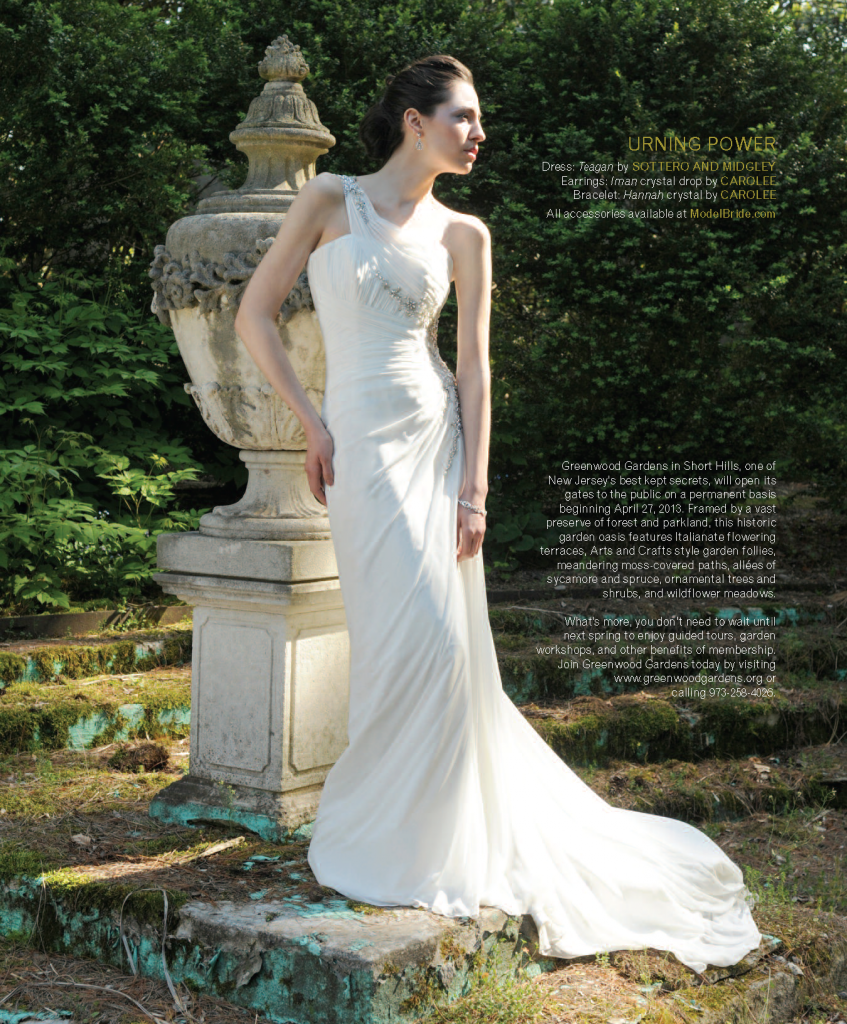
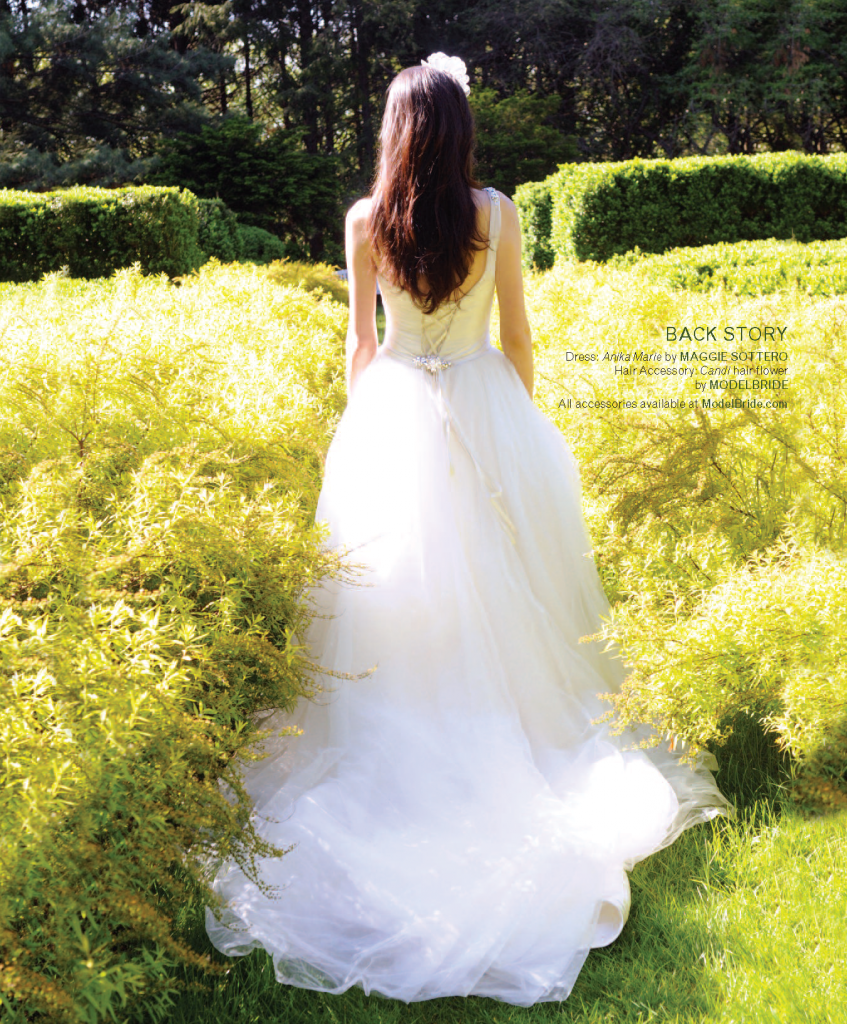
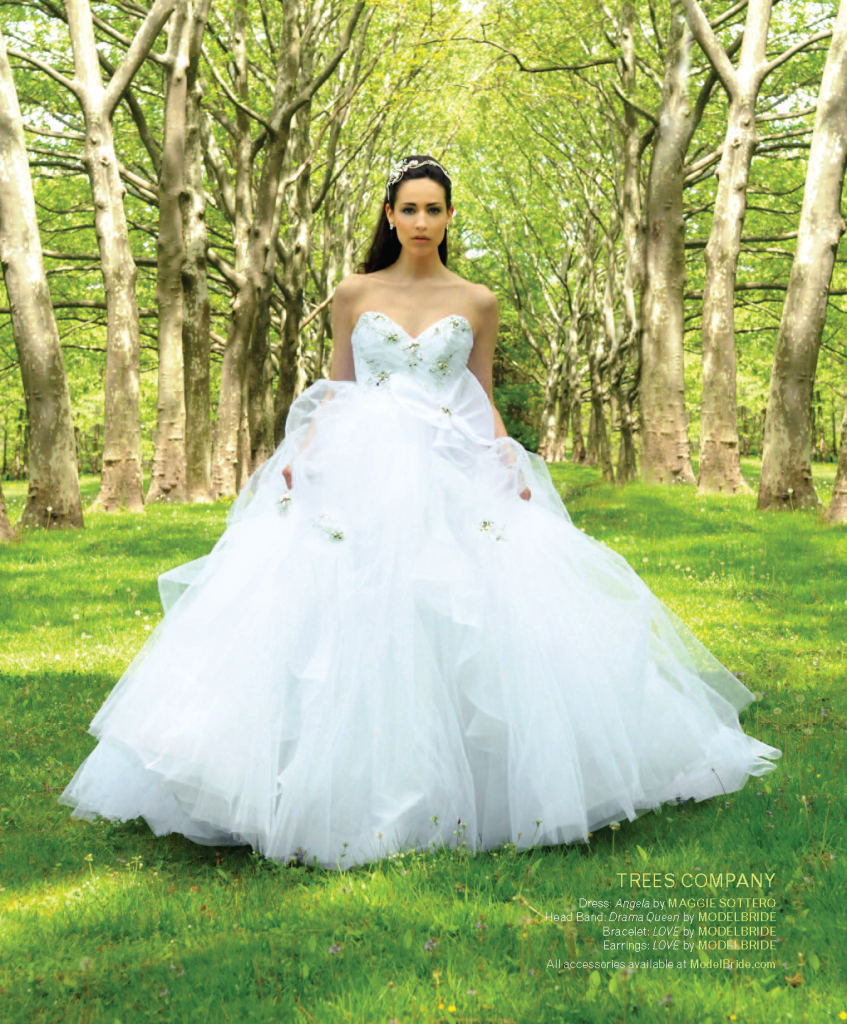
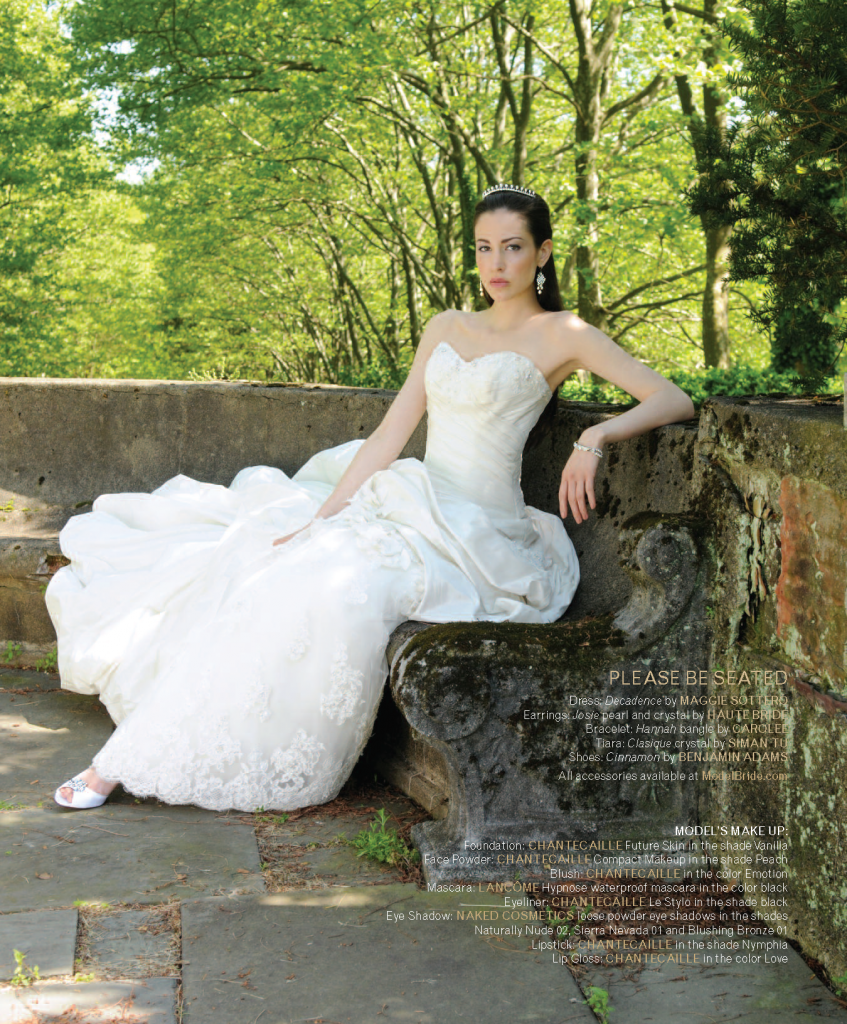
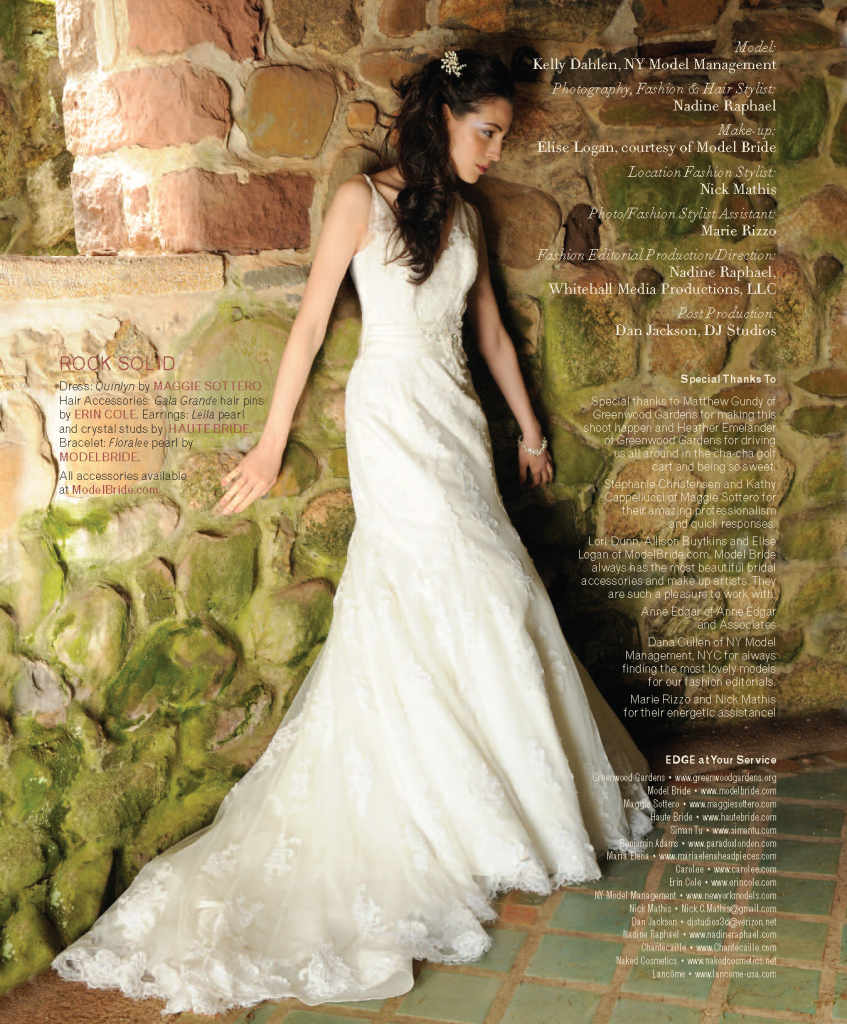
The economy’s down. Flyaway weddings are up. What’s the deal?
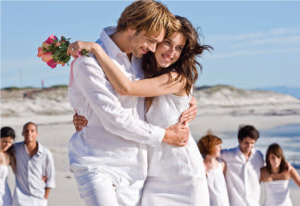
Photo credit: iStockphoto/Thinkstock
Of all the decisions a soon-to-be-married couple must make, none are more exciting, stressful or complex than picking a place to make it all happen on that special day. It’s a Rubik’s Cube of timing, geography, family politics and culture, and expense. With increasing frequency, the solution many couples choose is to eschew local and start thinking global for a glamorous destination wedding. Where and why the betrothed decide to go depends on a long list of variables. It also says a lot about how modern society has evolved. Not all that long ago, when people tended to start families and careers closer to home, relatively few weddings fit into the “destination” category. Today, that category comprises slightly more than half of all weddings. Let me explain. Technically speaking, a destination wedding is one that takes place outside the city where a couple currently resides, or where either soon-to-be spouse grew up. So two people who grew up in Bergen County, live in Union County and work in Manhattan could have a wedding in Princeton and it would be considered a destination wedding. When the travel industry talks about destination weddings, it is referring to something a bit more exotic. These are the events held thousands of miles away, typically in spots where the happy couple intends to honeymoon. Guests who can afford the time and expense don’t depart the next day; they tend to make a vacation of it. These nuptial jaunts have become big business for hotel and resort chains stinging from the current economic swoon, and an important profit center for enterprising small hotel owners around the globe. Indeed, both groups have developed appealing packages that they market very aggressively through travel agents and wedding planners. At first blush, the steady growth of the destination wedding business may seem surprising in these trying times. That’s because, when the trend first gained mainstream momentum a decade or so ago, it had glamour and snob appeal. There is still that element, to be sure, but it is the tightening economy that has actually propelled the destination wedding business forward. The fact of the matter is that a destination wedding, if planned properly, is actually far more economical than a traditional marital event.
Appealing Numbers The numbers are easy to follow. A traditional wedding may generate 150 to 200 invitations with a regrets rate of 10 or 15%. Even watching every penny, by the time all the checks are written the price tag is likely to range between $25,000 and $50,000. Move that same wedding to a Caribbean resort or the Amalfi Coast and the guest list shrivels to around 30. Keeping them well fed and lubricated for a few days will cost less than half of the at-home wedding; most reports actually put that number as low as one-third. Plus, the happy couple is already in situ for their honeymoon. Among the other advantages of a destination wedding is that the bride and groom get to spend quality time in an exciting place with an intimate circle of guests. It’s like spring break for grown-ups. Indeed, in most surveys the percentage of couples that choose a destination wedding for an “intimate group” is actually slightly higher than the percentage that say they did so for an “exotic locale.” For the destination wedding guests there are advantages, too. Since about half of all guests have to travel a significant distance no matter where a wedding is held, it’s not asking a lot for them to journey a few extra miles or spend a few extra dollars. The real deal-breaker is timing. If guests can’t swing the vacation days or find adequate childcare, they have to say thanks but no thanks. But for those who have the time and money, a destination wedding doubles as an unforgettable getaway. It’s a win-win.
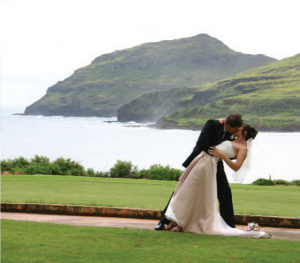
Photo credit: iStockphoto/Thinkstock
Where on Earth? A destination wedding can take place anywhere in the world, and can certainly happen in the United States. Miami Beach and Las Vegas, for example, rate high on the list of wedding destinations. Hawaii is also popular, especially with left-coasters. For New Jerseyans, the Hawaiian Islands have the additional advantage of further thinning out the guest list (it’s a really long flight). As a rule, the more popular destinations tend to involve water, beaches or a major city. Jamaica, with its many resorts, offers a lot of choices at different price points. Ditto for Mexico, where building along the Riviera Maya south of Cancun has been proceeding at a breakneck pace. Travel agents are also pushing Fiji (talk about a long flight!) and smaller spots in the Caribbean like Anguilla, which offer opportunities to explore neighboring islands. Another emerging hot spot for destination weddings is India. In many cases, Indian-born American-raised couples (or halves of couples) choose their wedding day not only to rediscover their heritage, but to immerse their non-Indian friends in a new culture. Many of the aforementioned places have become popular wedding destinations for another reason: They allow foreigners to tie the knot without suffocating them with paperwork or make them jump through ridiculous hoops. Every year, countless couples plan weddings in countries with quirky marital laws and don’t realize their blunder until they have started buying tickets and plunking down deposits. You may think a wedding in London sounds brilliant. Think again. The amount of red tape involved can be absolutely staggering.
Editor’s Note: An internet search for Destination Weddings will yield an endless stream of commercial web sites. They are fine to start with, but you may find unfiltered firsthand opinions to be more helpful. Many newlyweds blog about their destination weddings, and even more broadcast real-time details through social media web sites like Facebook.
A Dozen Dazzling Places to Say ‘I Do’
Toss out your bridal magazines. Delete those online wedding bookmarks. Tell your party planner to take a walk. This is New Jersey! If you’re in the market for an unforgettable wedding, you’re already in the right place. You just have to know where to go. I’m not talking Weird New Jersey here. On the contrary, every venue on this list lends itself wonderfully to traditional ceremonies and receptions. That being said, if you are looking for something simple, special, lo-tech or alternative, you can also count on these places to shine under virtually any circumstances. Finally, don’t fret if you’ve never heard of these nuptial hot spots. Each, in its own way, is one of the state’s best-kept wedding secrets.
The Great Outdoors
These wedding venues take advantage
of New Jersey’s awesome natural beauty.
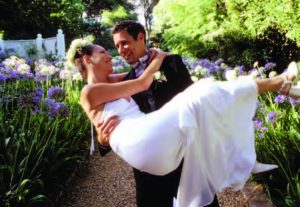
ANIMAL MAGNETISM
Back-to-nature types love the Mountain Lake House, which offers the ultimate in seclusion and privacy just a few minutes from ritzy Nassau Street in Princeton. Don’t be surprised if Bambi and Thumper join the festivities. Wedding parties are the interlopers on this 90-acre nature preserve; the furry full-time residents merely tolerate their presence.
TAYLOR MADE
Spring and Autumn wedding dates fill up fast at the Taylor-Butler House in historic Middletown. The breathtaking Victorian-Italianate structure sits on five wooded acres and has been lovingly restored to offer eight ornate rooms in which to hold your service and reception.
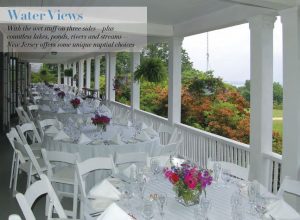
FARM TEAM
When you’re talking “blast from the past,” there may be no better wedding site in the state than the 1761 Brearly House, which sits in a meadow at the end of a winding, unpaved road in Lawrenceville. The hinges hadn’t even started squeaking on this lovely Georgian brick home when the colonials started taking potshots at the redcoats. Of course, those musket balls wouldn’t have been coming from Brearly. It was a Quaker farmhouse during the Revolution.
TAKE IT TO THE BANK
Before the Cooper River joins the Delaware, it ambles past
the Camden County Boathouse in Pennsauken. It serves as the launching point for some of the state’s finest crew teams. Add them to the people pulling for couples as they recite their vows on the balcony overlooking the river and the natural beauty beyond. It’s like getting married in a Monet painting.
HIGH WATER MARK
No other spot in New Jersey combines sea and sky like the Water Witch Club in Monmouth Hills (above). It offers a sweeping view of the Atlantic Ocean, New York City and Sandy Hook Bay, and is the highest place on the Eastern Seaboard where couples can tie the knot. Nestled in a neighborhood recently placed on the National Register of Historic Places, the Water Witch Club Casino has been in continuous use as a gathering place for performances and celebrations longer than any other in the state.
ANCHORS AWEIGH
For pure firepower, nothing can compete with the battleship New Jersey in Camden. Launched in 1942 and converted to a museum and memorial in 2001, she is the Navy’s most decorated battleship. The New Jersey (aka BB62) has her own events staff to ensure that everything’s shipshape for the nuptials.
ON THE WATERFRONT
If you prefer New York over Philly as your river view, then you’ll want to contact the folks who run the boathouse at Hoboken’s Shipyard Marina. An emerald lawn stretches right to the water’s edge, where guests can arrive by limo, ferry or—for that cousin who still owes you money—PATH train.
Classic Charm
These wedding spots feed the need for timeless tradition
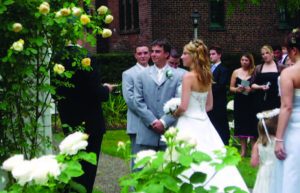
FLOWER POWER
Anyone getting hitched at Liberty Hall in Union (right) will tell you that a rose garden by any other name would not smell
as sweet. There’s just something about an outdoor wedding at this historic site—with its 23 manicured acres and breathtaking architecture—that truly transcends the mere traditional.
HOME JAMES
Catering halls may be off your radar if you’re looking for something beyond the ordinary. However, don’t be too quick
to eschew the James Ward Mansion in Westfield. While it offers the bells and whistles you’d expect from a traditional
wedding spot, it outdoes itself (and the competition) in terms of Old World elegance and sophistication. No smoked-glass
chandeliers here.
THANK HEAVEN
For most soon-to-be-marrieds, it’s an article of faith that the cost and commitment involved in the staging of a glorious
“church wedding” will come in on the steep side. Not so at the Kirkpatrick Chapel in New Brunswick (right). From the
towering candelabras to the chest-rattling pipe-organ music, it’s everything you dream of—only without the religious trappings or the big price tag.
Artful Dodges
A great way to avoid the obvious is to embrace
the creative side of the wedding equation
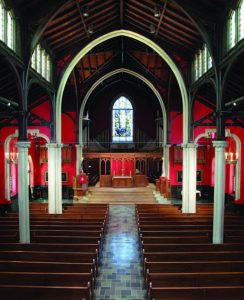
NIGHT AT THE MUSEUM
Looking to class up the in-laws on the big day? Look no further than the Newark Museum, which offers three different venues boasting priceless paintings and sculpture. You deliver the guests and the elegant Engelhard Court, the plush Ballantine House and the beautiful Alice Ransom Dreyfuss Memorial Garden supply the cultured surroundings.
WORK OF ART
Bringing form to your function is a specialty of the Grounds for Sculpture, located at the Seward Johnson Center for the
Arts in Hamilton. A favorite spot for exchanging vows is the Nine Muses by Carlos Dorrien, but with so much to serve as
an artistic backdrop, brides and grooms are encouraged to get creative. EDGE

